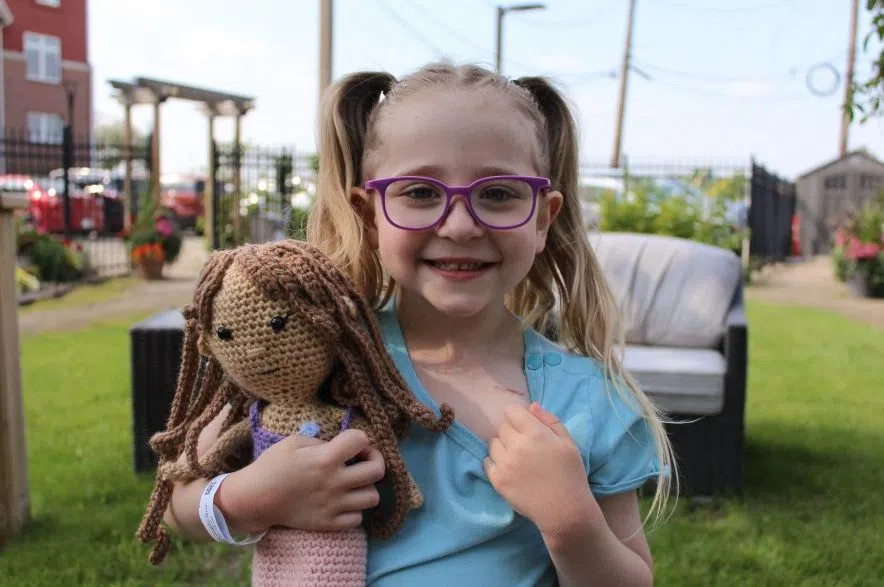Sitting in the garden at Ronald McDonald House in Saskatoon, five-year-old Ivy Brodner held something that means more than most toys ever could: a crocheted doll that looks just like her.
“She has a port just like me!” Ivy beamed, clutching her doll tightly. “It feels good because she’s my favourite doll ever.”
Listen to the story on Behind the Headlines:
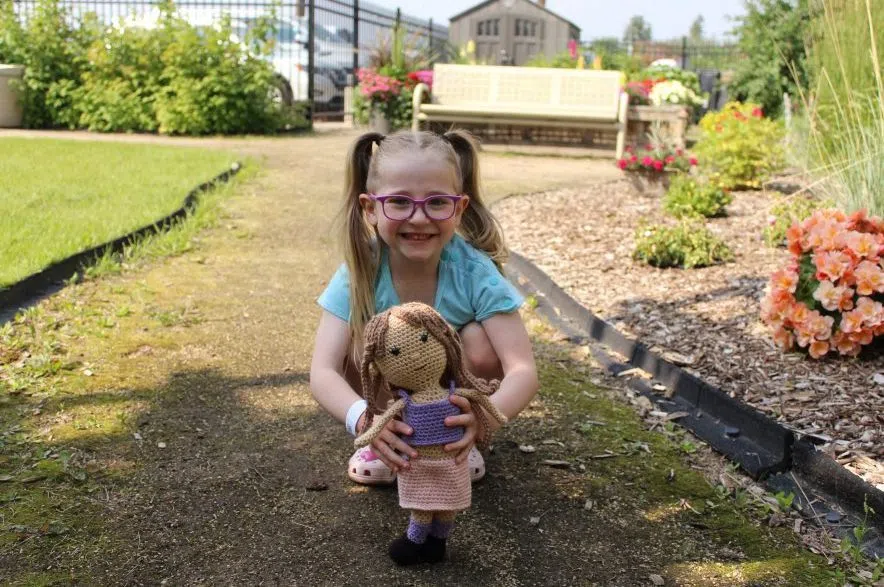
Clutching her namesake doll, Ivy finds confidence and comfort in a little friend who looks just like her. (Brittany Caffet/650 CKOM)
Ivy and her family live in Regina, but every month they make the trip to Saskatoon for appointments at Jim Pattison Children’s Hospital.
The bright, energetic young girl has juvenile dermatomyositis, a rare autoimmune disease that causes her immune system to attack her muscles and skin. Fewer than one in a million children are diagnosed with the condition. For most of her life, Ivy has carried the weight of that difference.
“She used to feel like nobody else was like her,” said her mom, Shandra Brodner. “When she had her PICC line, she wouldn’t let anybody see it. She said she was different.”
Read more Saskatchewan stories from Brittany Caffet:
- Elmwood’s inclusive slip ‘n slide brings summer joy to Saskatoon
- Behind the spandex: The real-life drama of Prairie Pro Wrestling
- This Saskatoon nonprofit gives $30K service dogs away for free
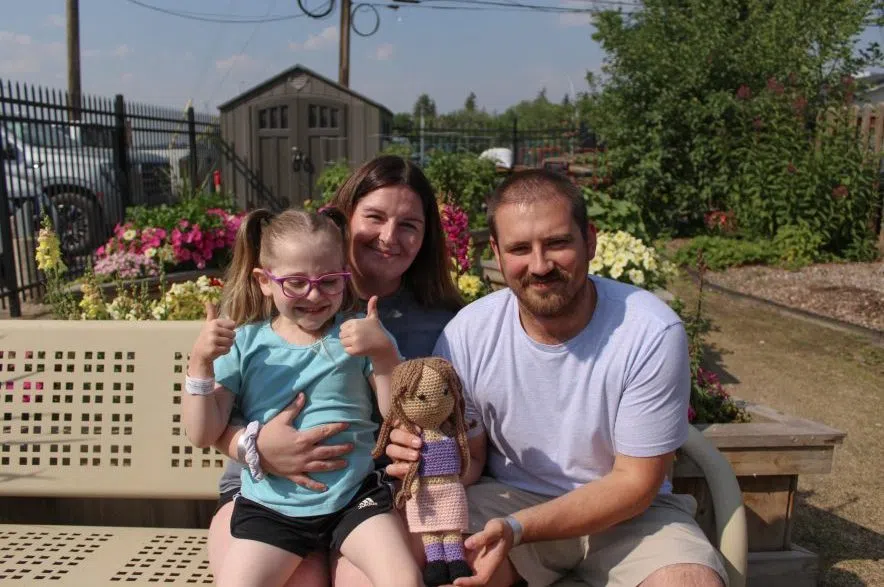
Every month, the Brodner family makes the journey from Regina to Saskatoon — united by love, resilience, and now, a doll that tells Ivy’s story. (Brittany Caffet/650 CKOM)
That all changed when Brodner reached out to Stephanie Wood, the heart and hands behind Yarn Toniq — a small business creating handmade crochet dolls with a powerful mission: representation.
“I feel like every child should be represented,” Wood said. “Everyone should have the opportunity to have a doll that looks like them.”
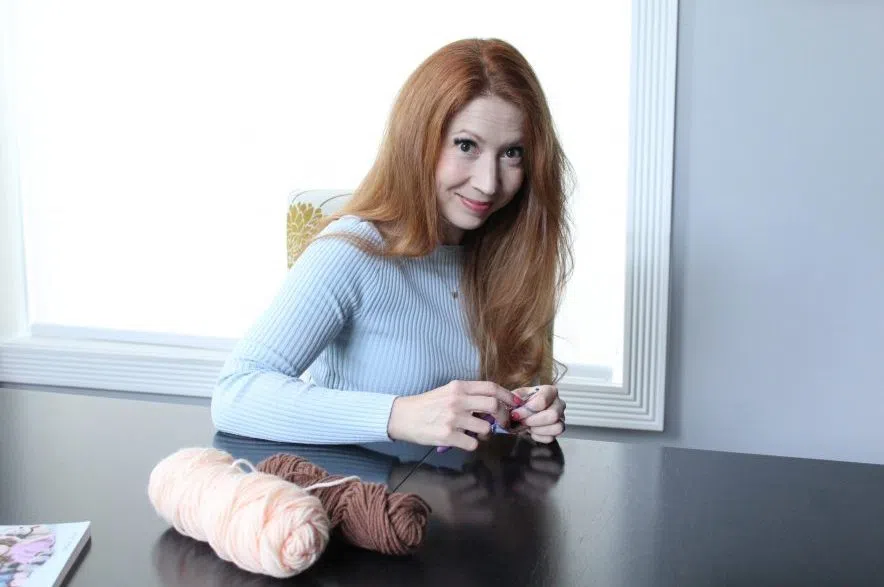
Wood spends up to 14 hours crafting each custom creation — ensuring every detail reflects the child who will hold it close. (Brittany Caffet/650 CKOM)
Wood began making custom dolls last year when a mom asked if she could crochet a boy doll with a feeding tube. “I just thought, ‘Oh, I have to find a way to make this,'” she recalled. “I was really happy with how it turned out, and she was too. It became part of their little circle — they dress him up for holidays, take him everywhere.”
When Brodner contacted Wood about making a doll for Ivy, the details mattered.
“I want to check with these moms,” Wood said. “What does the port look like? What’s the colour? It’s important.” For Ivy, the doll had to have her favourite colours — “I like purple and pink and sometimes blue,” she told Wood.
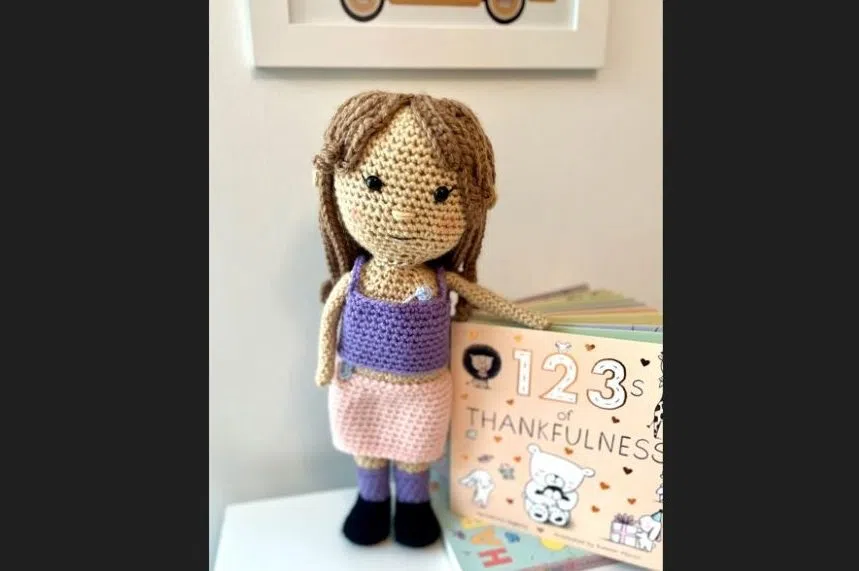
Meet Ivy Rose, the crocheted companion with a medical port and a heart full of bravery. Named by Ivy herself, she’s more than a doll — she’s a reflection of strength, stitched with love. (Submitted)
When Ivy saw the doll, her reaction was pure joy. “I thinked (sic) about having a tea party with her,” she said happily.
For Brodner, the moment was emotional. “I wanted to cry. Kids who go through so many medical things feel different. Now, even seeing a doll with a port, she said she has someone that looks like her. She calls it Ivy. That makes me feel really good as a mom.”
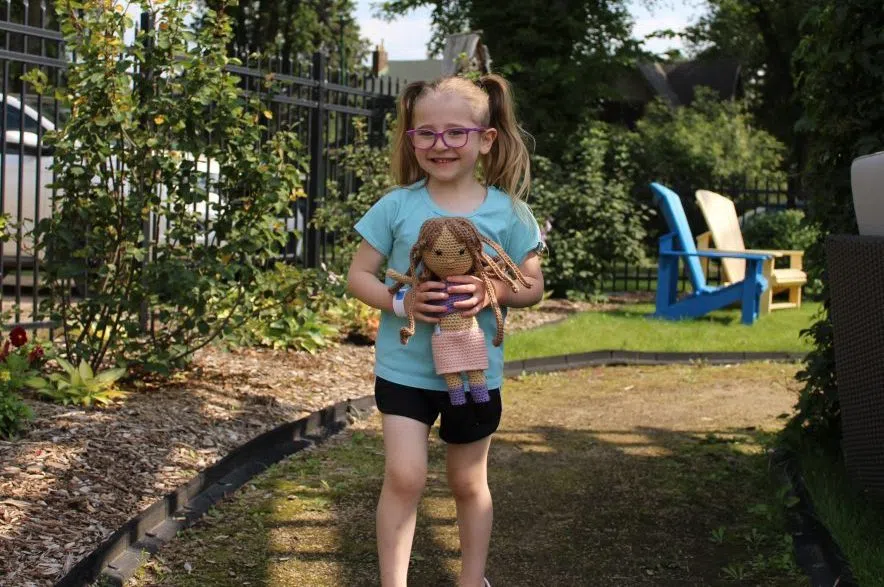
From the hospital to playtime, Ivy and her doll travel the journey hand in hand. (Brittany Caffet/650 CKOM)
Wood understands that feeling deeply. Her son was a micro preemie, born three months early and weighing just one pound, 11 ounces. “We had a lot of NICU months,” she shared. “That was a turning point for me. This is so much more than a hobby. So much more than a side hustle.”
Each doll takes between 10 to 14 hours to make. But for Wood, it’s more than time well spent — it’s therapy. “It’s really mutually beneficial,” she said. “It makes me feel better to have my hands busy like that, and I’m creating something that’s going to be really special to a child and a family. It’s win, win.”
And the impact is bigger than anyone imagined. After Wood posted Ivy’s doll on Instagram, Brodner connected with another person in Saskatchewan with juvenile dermatomyositis.
“It’s not another child — it’s another lady — but it’s nice to know someone else here does have it,” Brodner said. “To see what it’ll look like later in life.”
That connection, like the doll, is one in a million. Or, as Brodner puts it, two in a million.
“Nobody really knows about this disease. She’s about one in a million. And now they’re two in a million. The doll and Ivy — two in a million.”
